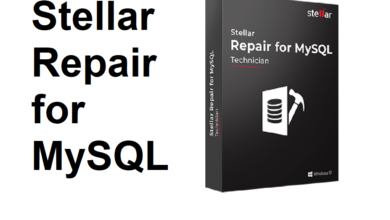
It’s amongst the most important and valuable things any content marketer can do; and yet far too many do it poorly or not at all.
In this post I’ll cover why persona marketing interviews are one of the most important things you’ll do; how to do it well (and what the opposite looks like); and what you should actually do with the information you gather. Let’s go!
First: what is a persona marketing interview? For me, as a director of content, it’s the process of talking regularly to individuals who fit your ideal customer profile (ICP) to find out how better to engage them with your content.
I don’t think there’s any more valuable use of your time as a startup employee than spending it trying to understand the people to whom you’re trying to sell. It’s true for founders, it’s true for product designers, it’s true for salespeople and it’s certainly true for marketers.
In a given week I’d expect to talk directly with current customers, sales prospects, churned customers and generally anyone who we’d hope might buy or renew with us at least two or three times. Here’s why I do it, how, and what I do to apply what I’ve learned.
Table of Contents
Why Prioritize Persona Interviews?
Let’s start with ‘why’. Why should you prioritize this above the dozens of other tasks and projects you could be using to actively drive growth – writing keyword-led content, driving whitepaper downloads, programming events, running paid campaigns, and so on?
I believe that good content marketing is about empathy. Particularly for growth-stage B2B companies who rely less on brand marketing, the core message you’re trying to convey across all your content is simple, and it’s always the same: we understand the pain you are experiencing, and we can help you to reduce it.
However, for startups, just delivering against the first half of that statement – we understand you – is already extremely difficult to do convincingly. Startups are new. They have almost no authority. Nobody really cares what they think and nobody has any reason to believe the things they say.
Simply establishing that trust and authority is a huge job – particularly in certain B2B verticals. Juro’s ICP is the Head of Legal at a high-growth tech company. Lawyers have robust bullshit filters and if you cruise around saying that you understand them, but you don’t, they’ll see through it immediately.
So if you really want to earn trust, and genuinely understand your ICP enough to deliver marketing content that resonates, guesswork and a bit of desk research aren’t going to cut it. Knowing industry buzzwords and hot topics isn’t enough. Knowing what their peers are buying and reading isn’t enough. These are surface-level insights and they’ll lead to surface-level content.
To really convince people that you understand them, and that you can help them, you need to know how they feel. For this, you need to perform deep discovery in your persona interviews.
How To Get Under Your ICP’s Skin
To do this regularly, you’ll need people willing to talk to you. This may or may not be as simple as it sounds, depending on how often you’re exposed to customers and prospects in person. Juro runs a private community for in-house lawyers, so I don’t lack for people to talk to, but if you’re struggling for ICPs to interview, then you need to make some friends.
Once you’re ready, then schedule some time to chat with your ICP contact face-to-face (or via Zoom – thanks, COVID). Now you’ve got them in front of you, what do you ask them?
Here are some examples of bad questions to ask in an interview:
– What are your current pain points in your role?
– What are your priorities for the quarter ahead?
– What are your specific pain points around [your company’s product area – i.e. contracts, payroll, marketing data, or whatever area your solution addresses]? – What products or features would make your life easier?
Wait, what? “What’s wrong with those questions? I ask those! If I want to find out their pain points at work,” you might be thinking, “why wouldn’t I ask them about their pain points at work?”
Here’s why these are bad questions. To answer them, firstly your interviewee is going to think about their day at work. Then they’re going to make an internal judgement about you. They’ll try to work out:
– Which bits of their job they want to talk about
– Which bits of it they think you’ll understand
– Which bits reflect well or poorly on them
– How much they need to self-censor and rewrite history
– How much they need to dumb it down for you
After making this judgement, they’re going to attempt to translate their conclusions into some kind of marketing-adjacent message that they think you’ll understand. This translation is what they’re going to share with you.
At this point you’ve already lost the core level of insight, because it’s gone through several translations between the question landing with them and the answer coming back to you. You’ll hear … pretty much what you’d expect to hear. Surface-level insights.
The most important thing to realise – and if you only remember one morsel from this long read, it should be this:
Working Out The Story To Tell About Your Prospects’ Pain Points Is Your Job, Not Theirs.
The person you sell to is almost certainly not equipped to express their challenges and motivations in a way that marketers can directly apply.
Instead, you need to get them comfortable. Get them to open up. Get them talking about their lives, how their work fits in, and the emotions they feel as they navigate their roles.
By way of example, if I’m talking to Juro’s ICP – the Head of Legal or General Counsel at a fast-growth tech company, usually between Series A and Series E fundraising – here are the kind of questions I ask:
– Why did you move to an in-house legal role?
– Is it what you thought it would be?
– Do you have a weekly 1-2-1 with your manager? Who’s that?
– What kind of stuff do you want to talk about in that meeting?
– What kind of stuff does your manager ask you?
– What don’t you want to talk about in that meeting?
– Which other teams in the business do you think dislike you?
– Which teams are your strongest allies?
– Do you have KPIs? Do you think they’re fair? Are you hitting them? What happens if you don’t?
– Is Slack annoying? Why?
– Do you go to the pub with the sales team? Who’s buying?
– What time do you finish work? Do you sneak back onto your laptop after the kids are asleep? Why?
– What does your inbox look like at the end of the quarter? And how are your stress levels compared to the start of the quarter?
Of course, I might ask follow-up questions to these that touch on specific pain points or feature requirements. But I want to understand their feelings, motivations and mindset, before getting into specifics. This means I understand the root cause before they start to talk about its consequences. Start with ‘why’, before progressing through ‘how’ to ‘what’. This is how you’ll learn how they feel – and only then can you deliver content with empathy.
What To Do With Your Learnings
Now you have this deeper insight into the lives of your ICP, what should you do with it?
This is where things get really interesting. While this kind of discovery is absolute gold dust, it could reasonably be called ‘anecdotal’. Unless you’re surveying hundreds of prospects at a time and asking them the exact same questions, and repeating that every quarter, this isn’t really a dataset from which you can derive cast-iron conclusions.
For example, if it turns out that one of your interviewees doesn’t really have to worry about budget for software spend, because the company is so well-funded – are you going to increase your public pricing? Of course not. As a datapoint, it’s statistically insignificant. For
issues like pricing, user journeys and conversion, nothing will ever beat A/B testing on your website.
So wait, why am I doing all this then?! The applications of persona interviews are less black and white than an enormous dataset, but no less useful. Here are some of the ways I apply my findings.
-
Horizon Scanning
Developments in the industry that might affect your ICP will be on their radar before they reach yours. With the lawyers Juro sells to, that might be some new legislation or a court decision that will impact their work. I could try to monitor regulatory developments at great expense like a lawyer would, or I could just find out what my key contacts are actually worried about, right now, directly from them. You’ll hear about anything significant plenty early enough if you’re in regular conversation with your ICP.
-
Testing Jargon
Startups are swimming in acronyms and internal jargon. Nomenclature you adopt internally might bear no relation to the way prospects actually talk out there in the real world. Similarly, the way you describe something where you’re based in the world might mean nothing to a prospect in a different country. Vocabulary needs to be road-tested to make sure it’s accurate and accessible – otherwise small mistakes can undermine your credibility and undercut the authority you’re building.
-
Creative Ideas
A prospect might share a problem or frustration with you, but have no idea how they might solve it through content. To them it’s just another worry piling up in their inbox. But you’re the marketer – their frustrations might spark a creative idea that quickly makes it to production and delivers value. A half-mumbled sentence in a content interview can easily become a successful eBook or roundtable in the right hands.
-
Testing Ideas
Similarly, an idea you’ve had might seem irresistible to you, but appear to be a huge waste of time to your prospect. If you’re intending to plan an event, for example, run it past your ICP on a discovery call to see if they’d like it. They might even suggest or recruit speakers for you and guide you on how to structure the content for maximum value.
-
Validating Content
If an idea has made it to production but you’re not sure whether you nailed it, validate your draft content with its target audience before pushing it to publication. I did this with a lengthy piece on contract negotiation when I had a crisis of confidence in the steps I’d laid out; by stress-testing it with a prospect, I managed to get to a version I knew would resonate. Having trusted advisers you can turn to informally is priceless. Which leads onto the final point.
-
Make Friends
You’ll hear this called many different things: networking, community-building, peer engagement, or whatever term is hot this week. The simple truth is that as a content marketer, it’s invaluable to have genuine friends amongst your target audience.
They can make introductions to content contributors, suggest formats for events or content, and join the panel for your event. They’ll be honest with you if something you did flopped and even tell you why. Perhaps most importantly of all, they’re the warmest kind of lead when it comes to actual sales conversations.
Final Words
That’s the why, how and what of persona marketing interviewing as I practice it at Juro, and for what it’s worth, we have the results to back it up. Prospects regularly email my team and me personally to compliment our content. Our ICP-focused newsletter has an open rate average of 60%+ and a clickthrough average of 35%+. We often drive 1000 downloads of gated content by qualified leads through influencer-led social distribution, with zero paid promotion.
Make friends. Understand them. Understand how they feel and do your best to respond to it thoughtfully. In my experience it’s the greatest ROI on your time it’s possible to find in content marketing.
Article is written by Tom Bangay, Director of Content, Juro
Follow TodayTechnology for more!








